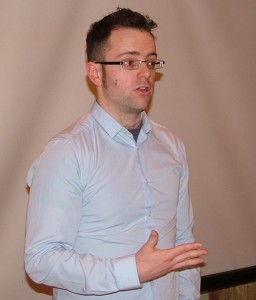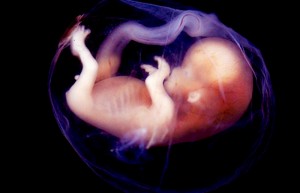
By Susan Gately - 23 January, 2016

Dr Tom Finegan, Legal Advisor, Family & Life
The right to life of the unborn is the human rights issue of our time, Dr Tom Finegan, legal advisor to Family and Life, has said.
“If you look back at the history of human rights, whether it’s at women’s rights, the rights of black people or the rights of mentally disabled people, the common denominator is the trajectory from these human beings being disregarded as not [being] fully human to being accepted by the wider community, by the state, as human beings.”
Addressing a pro life gathering in Naas on Thursday night, Dr Finegan said Ireland was at an important time in relation to the rights of unborn human beings.
“Right now even in decent societies, the rights of unborn children are often overlooked and minimised in order to advance other things such as an absolute insistence on adult reproductive autonomy.”
He continued, “Our job is to insist in a compassionate and fair but in a courageous manner, that unborn children are children, smaller children who may not be as visible politically or legally to the eyes of many, but are children none the less. They are human beings and by virtue of that alone, they are deserving of human rights protection.”
Tracing the recent history of constitutional change in Ireland, from the passage of the 8th amendment in 1983 which recognises the ‘equal right to life of the unborn’ (alongside the right to life of the mother), to the X case in 1992 and more recently the passing of the Protection of Life During Pregnancy Act, Dr Finegan pointed out how the abortion rate in Ireland was drastically lower than that of the UK.
Tens of thousands of Irish people are “walking around” today because of the lack of abortion and a “major factor is our constitutional protection of the unborn”.
 Currently however there is a move to “isolate a particularly vulnerable class of child in the womb and give the impression that this class of human being isn’t really human, isn’t really alive.”
Currently however there is a move to “isolate a particularly vulnerable class of child in the womb and give the impression that this class of human being isn’t really human, isn’t really alive.”
“[They] don’t deserve any kind of protection whatsoever and use that as a wedge with which to open the constitutional door to abortion on virtually any ground whatsoever.”
Pro Choice campaigners ultimately wanted abortion to be available on a wide range of grounds, said Dr Finegan, “but that is not the ground that Fine Gael and Labour want to fight this campaign on.”
Now the focus is on the rights of children with life limiting conditions. “There is a human being to protect therefore it is important to extend human rights to these children even if they have a short life expectancy.”
He also called for changed social conditions and attitudes so as to make abortion seem much less of a necessity for women in a crisis pregnancy especially women facing a crisis pregnancy without any support, family or otherwise.
“It is exceptionally important that we create tax systems and employment law and a social apparatus that makes these women feel secure and comfortable and hopeful enough to continue in their pregnancy and know that is not the end of their economic and social life.”

Kate Bopp, Mothers and Fathers Matter
During question time afterwards, Dr Finegan suggested that 18 months parental leave would be one measure to help women in crisis pregnancy situations.
Kate Bopp from Mothers and Fathers Matter, recommended Gianna Care as one organisation which takes care of women in crisis pregnancy.
“There are so many organisations now evolving that look after women in a crisis. Gianna care is one of them. [It gives] not only moral support, but material help, if someone needs a place to stay, nappies, formula, cots – real help. And if a woman has had an abortion and is suffering, Gianna Care will help her with counselling,” she told the sixty or so people present.
Columnist Paddy Manning who plans to stand for election in the constituency of Carlow-Kilkenny, appealed to those present to vote and canvas for pro life candidates.
“The government would like to think that we have gone away, but we have not,” he said.
He noted that Kildare had two Fianna Fáil candidates standing for election who were both unequivocally pro life – Seán Ó Fearghaíl in South Kildare, and James Lawless in North Kildare.
“They are two men you can absolutely trust. They have put it on the line,” he said.
The meeting was the latest of a series of public meetings organised by Family and Life in Dublin, Cork and Kildare.